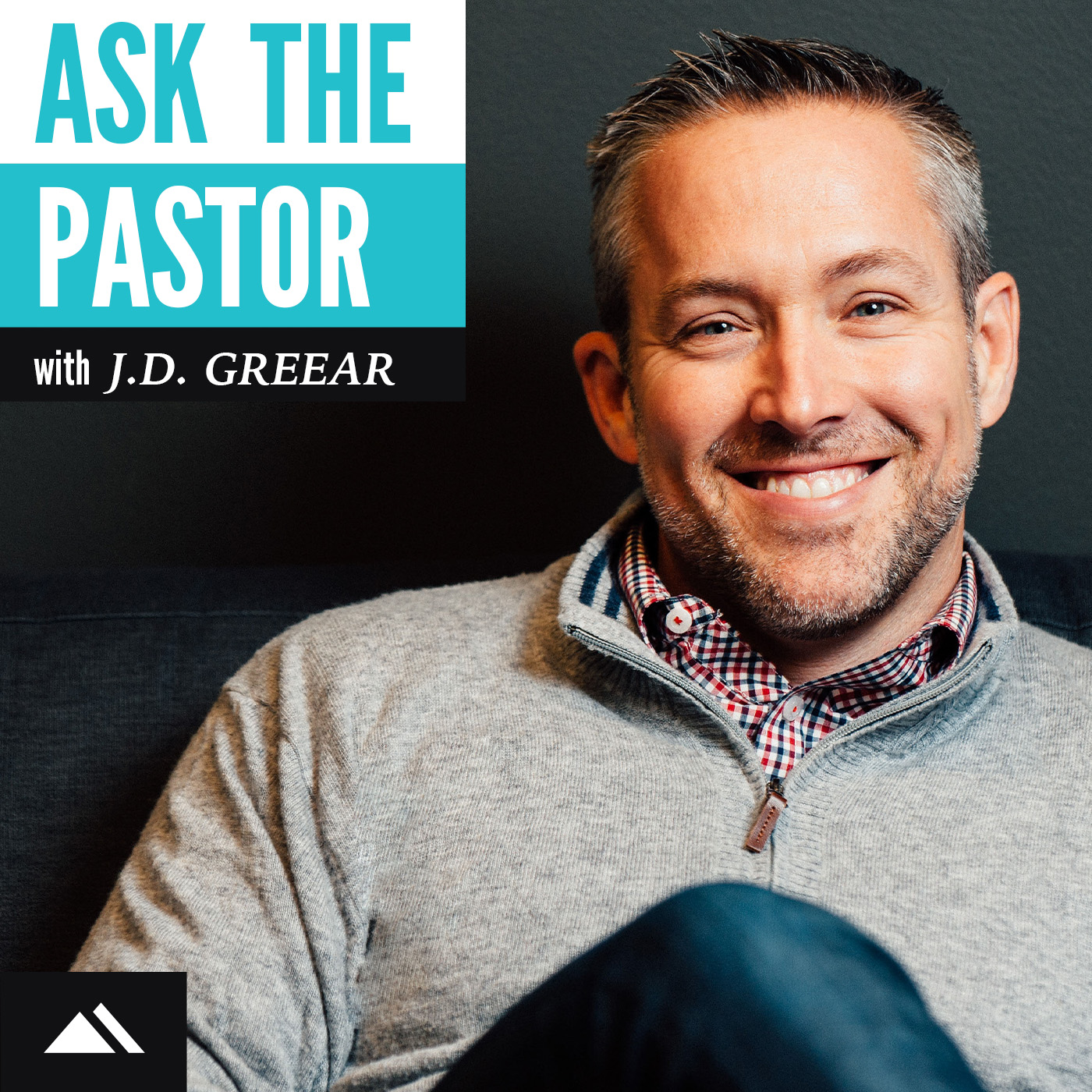

Ask the Pastor with J.D. Greear
J.D. Greear
Ask the Pastor with J.D. Greear is a weekly podcast that answers tough questions and tackles relevant issues in a way that is filled with grace, understanding, and wisdom from God’s Word. Hosted by Matt Love.
Episodes
Mentioned books

Dec 7, 2020 • 14min
Why is the Summit multi-site? Is multi-site biblical?
Pastor J.D. discusses how the Summit approaches multisite and what the Bible has to say about it.

Nov 30, 2020 • 8min
What’s your favorite sermon you’ve ever preached?
The hosts discuss their favorite sermons they have preached and the fulfillment they derive from preaching. They reflect on a two-sermon series on the book of Ecclesiastes, highlighting the theme of vanity and the goal of any sermon being worship. They also mention sermons turned into books and promote the 'Group Answers' podcast.

Nov 23, 2020 • 12min
What Do I Do if I’m Just Not Getting a Lot Out of My Quiet Time?
Pastor J.D. shares his personal struggles with quiet time and emphasizes the importance of consistency. He recommends One Year Bibles, Gospel: 90 Day Devotional, YouVersion app, Joshua Project, and the 15/15/15 method for Bible study and prayer.

Nov 16, 2020 • 14min
What do you think about the death penalty?
Pastor J.D. discusses three common objectives people have surrounding the death penalty.

Nov 9, 2020 • 11min
How Are You Processing the Presidential Election?
Pastor J.D. shares three words that should guide our post-election posture—empathy, charity, and unity.

Sep 28, 2020 • 10min
How can my gifts and resources be leveraged for the Great Commission?
Pastor J.D. challenges college students—and anyone else in a season of transition—to give two years doing something strategic for the mission of God.

Sep 21, 2020 • 7min
What’s on your bucket list? And why are you against it?
Pastor J.D. talks about why it’s time we kick our bucket lists and do the one thing now that we can’t do in eternity—share the gospel.

Sep 14, 2020 • 12min
J.D., why aren’t you a missionary since you spend so much time talking about missions?
Pastor J.D. shares how God called him to the mission field before calling him to be a pastor of a church that sends and supplies the mission field in extravagant ways.

Jun 5, 2020 • 11min
How should Christians respond to the protests happening across the country?
Pastor J.D. is joined by Pastor Bryan Loritts for a special edition of Ask Me Anything where they look at the events of the past week.

May 25, 2020 • 13min
What Are the Three Most Important Things for a New Believer to Do Immediately?
Pastor J.D. discusses the three most important things for new believers to do as they begin their relationship with Christ.


